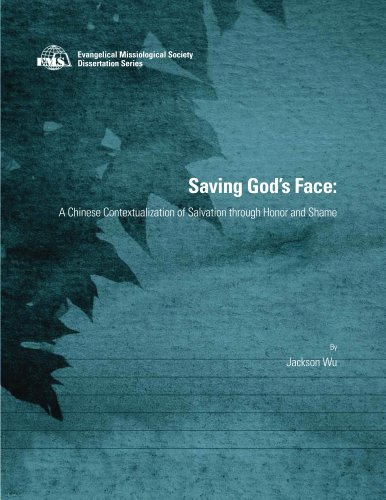In Saving God’s Face, I lay out a spectrum of approaches to Chinese contextualization. Given the lack of consensus and uniform categories on the topic, my categorization is no doubt subjective. However, it represents the spectrum of views in a way that seems less arbitrary than dividing them via geography, ethnicity, denominations, or topics in systematic theology.
It’s been a while since I discussed some of the issues raised in Saving God’s Face so many readers may be unfamiliar with its content. For others, a reminder of select ideas might prove helpful. The following categories signify six ways that theologians and missiologists talk about and do theology for a Chinese context. Although each has defining characteristics, this does not deny overlap and agreement between the approaches. These categories do not suppose hard and fast dichotomies.
“Situational” approach
First, a “situational” approach lays stress on the contextual issues Chinese face. Liberation theologies fall into this category. With respect to Chinese theology, C. S. Song is representative of a “situational” approach. Factors from the readers’ own circumstances are given prime importance in formulating theology.1 In practice, this emphasis on the local situation acts as a protest against the tendency to universalize Western theology.
“Sino” approach
Second, many have emphasized ethnic identity. This will be called the “Sino” approach. These thinkers repeatedly stress the utmost importance of making sure their theology is “Chinese.” As a result, they may be criticized for using weak theological methods or minimizing the biblical context. “Sino-theology” is probably the best example of this perspective.2 Especially noteworthy is Malaysian Chinese theologian, K. K. Yeo, who is quite explicit about his ambition to develop a distinctive Chinese theology.
“Synchronistic” approach
Third, the “synchronistic” approach draws from a number of cultural concepts to communicate theological meaning. Many of the earliest missionaries to China are characteristic of this view. They and others have taken seriously the importance of culture in contextualization. Typically, this method employs a prominent cultural issue, seeking to synchronize or coordinate theology and culture. Often, the chosen theme is not one of the foremost motifs found in the Bible itself. In China, this may include ancestor worship, Chinese New Year, cosmology, even the Chinese language itself.
“Scriptural” approach
Fourth, many evangelicals have utilized a “Scriptural” methodology. They are emphatic that the Bible directs the contextualization process; therefore, such treatments are littered with biblical references. Traditional theological topics receive special attention. A grammatical-historical method of interpreting the Bible is a common characteristic.
This nomenclature (i.e., “Scriptural”) in no way suggests that others ignore the Bible or do not affirm the Scripture’s supreme authority; nor is it implied that others do not use a grammatical-historical method. Rather, these categories signify the aspect of contextualization most emphasized by an author. Therefore, someone like Enoch Wan has used a “synchronistic” approach to the “Tao” idea,3 a “Scriptural” treatment of Christology,4 and a “systematic” analysis of Western and Chinese theology.[efn_noteWan, “Critiquing.“[/efn_note] Of course, some articles defy easy categorization due to a high degree of integration.5 However, this grouping tends to use conceptual models rather than theological contextualizations themselves.
“Systematic” approach
Fifth, many thinkers have only developed “systematic” frameworks for approaching the question. They are more speculative in nature. These writers engage in questions of meta-theory; that is, they primarily explore problems related to or about contextualization. For example, topics might include the use of metaphors, cross-cultural hermeneutics, the danger of syncretism, and the influence of worldview on contextualization. Works that demonstrate a “systematic” approach to Chinese contextualization are not themselves theological proposals regarding a central theme within historical, systematic, or biblical theology.
“Soterian” approach
Sixth, a “soterian” approach aims at sharing with individuals how they can be saved.6 Gospel tracts are typical of this method. It communicates the “plan of salvation,” whereby one may come into a personal relationship with God. In short, sharing the gospel means helping people understand salvation.
Soterian presentations are generally brief, less nuanced than other approaches, and are not overtly theological works. They try to communicate basic truths needed for salvation. Many of these evangelistic methods share theologies and concepts utilized in other approaches.
The above is adapted from an excerpt of Saving God’s Face. In the book, I give a much fuller explanation (with examples) of each approach to contextualizing the gospel for Chinese. Particular attention is given to identifying each approach’s view of Chinese culture, its methodological assumptions, and the doctrine of salvation. The book explores those factors that inform these contextualized theologies.
This post is also available at Jackson Wu: Doing Theology. Thinking Mission.
Endnotes
- After writing this, I found another Chinese theologian who asserts, “I think the starting point for Chinese Christianity is the contemporary Chinese socio-cultural reality,” after which he offers C. S. Song as an illustration. See Wenxi Zhang, “Christianity in the Chinese Cultural Context” (Paper presented at 22nd National Catholic China Conference, Nov 2006), n.p. [cited 2 Feb 2011]. Online: www.holyredeemer.cc/pdf/Zhang.pdf.
- For further study, see the Institute of Sino-Christian Studies. Online: www.iscs.org.hk.
- Enoch Wan, “Tao––The Chinese Theology of God-Man,” His Dominion 11, no. 3 (Spring 1985): 24–27.
- Wan, “Jesus Christ for the Chinese.“
- Wan, “Practical Contextualization.“
- Here I use “soterian” as articulated by Scot McKnight in The King Jesus Gospel
Image courtesy of the author.

Brad Vaughn
Brad Vaughn (formerly known by the pseudonym Jackson Wu; PhD, Southeastern Baptist) is the theologian in residence with Global Training Network. He previously lived and worked in East Asia for almost two decades, teaching theology and missiology for Chinese pastors. He serves on the Asian/Asian-American theology steering committee of the Evangelical …View Full Bio
Are you enjoying a cup of good coffee or fragrant tea while reading the latest ChinaSource post? Consider donating the cost of that “cuppa” to support our content so we can continue to serve you with the latest on Christianity in China.
